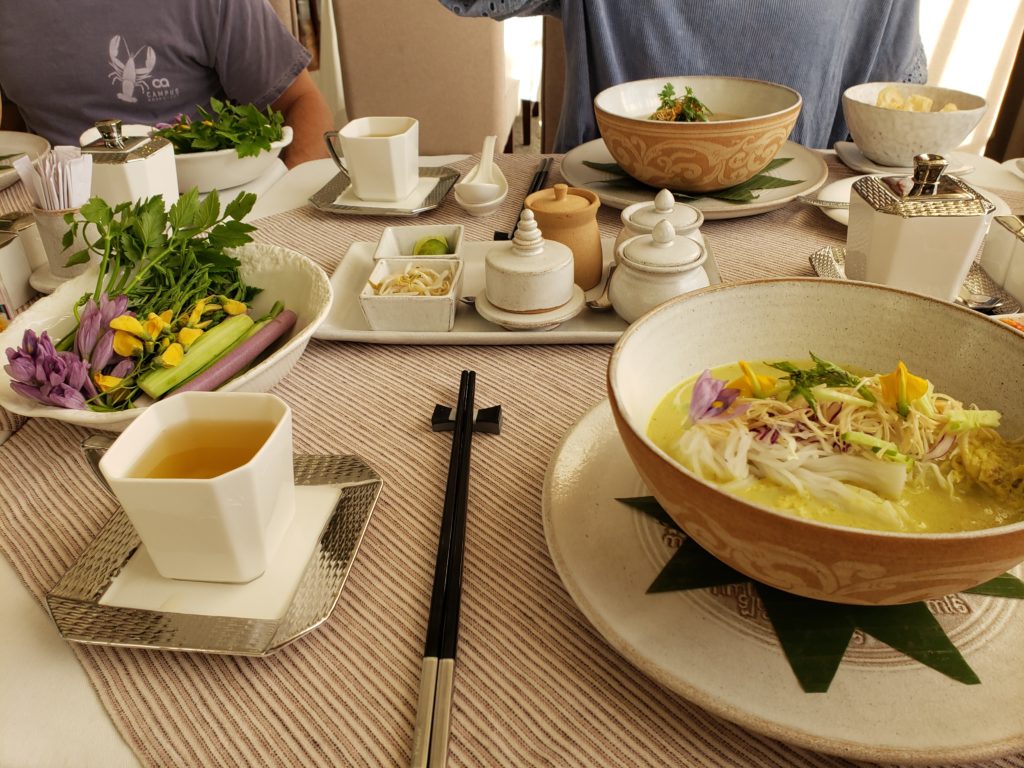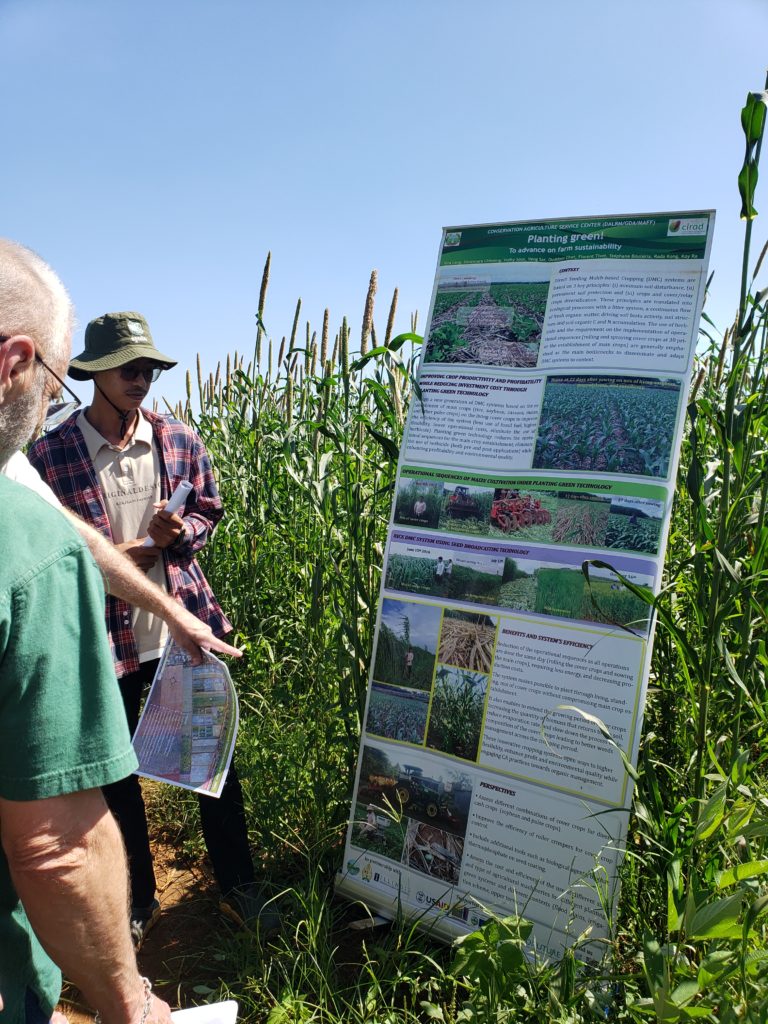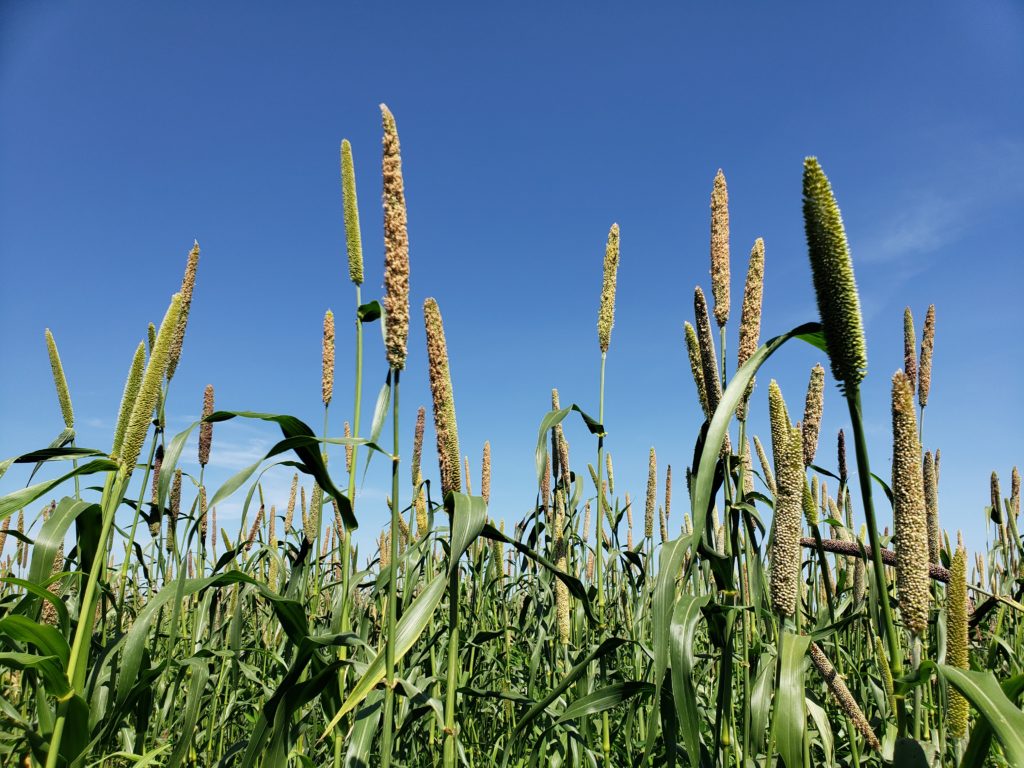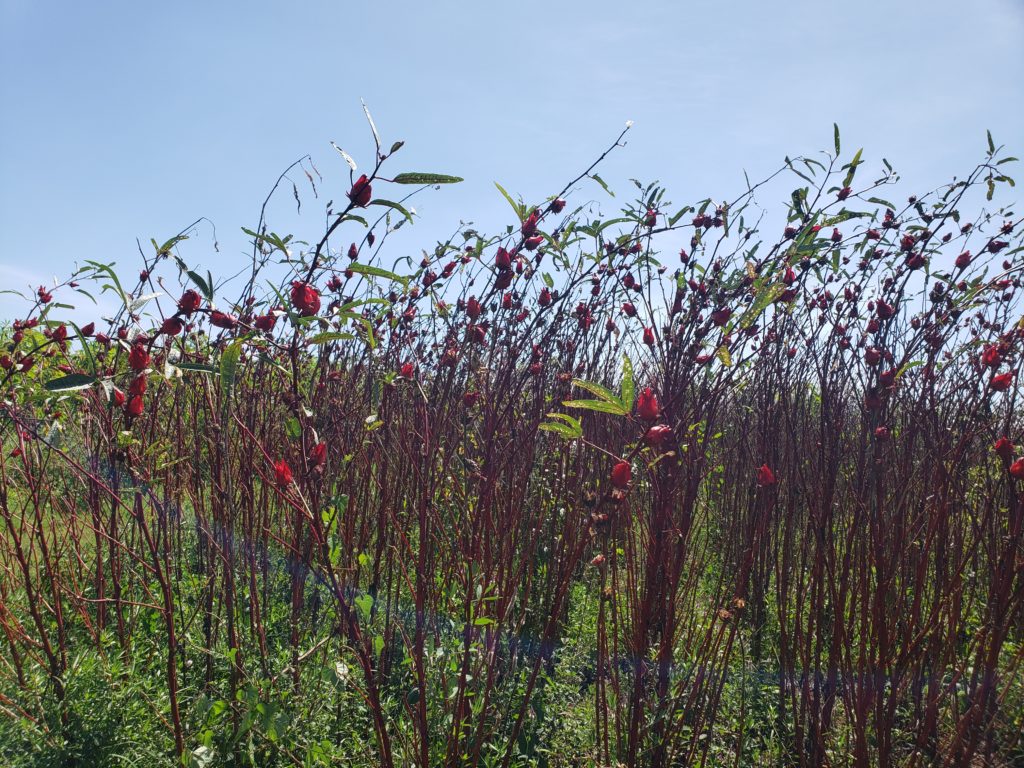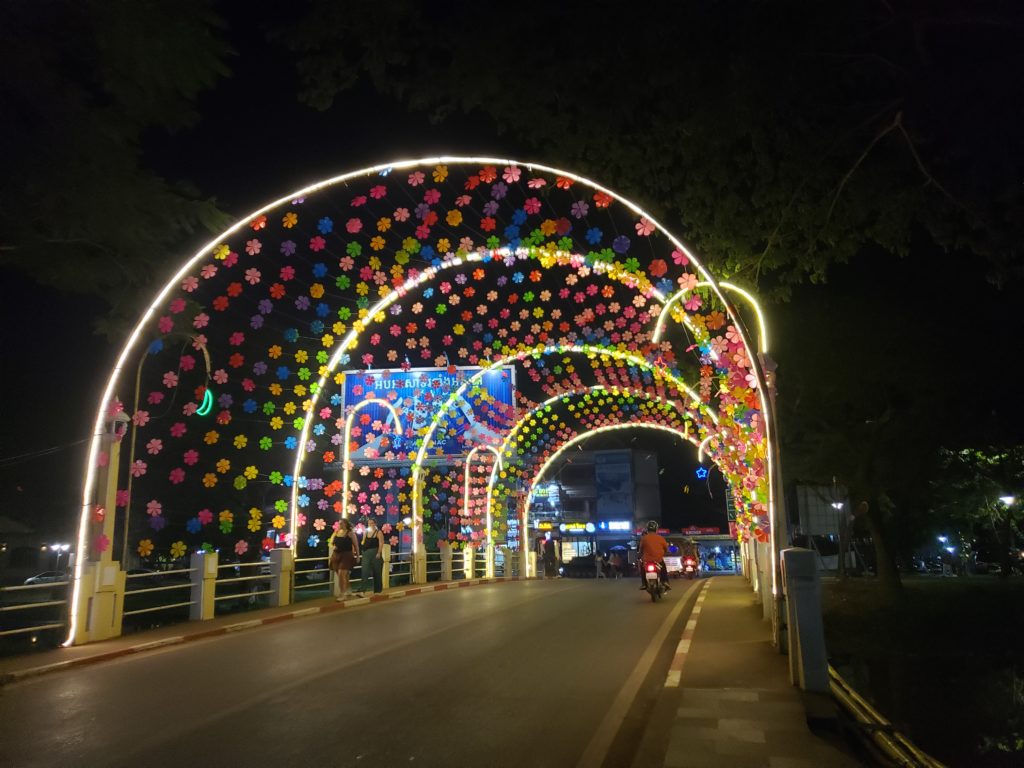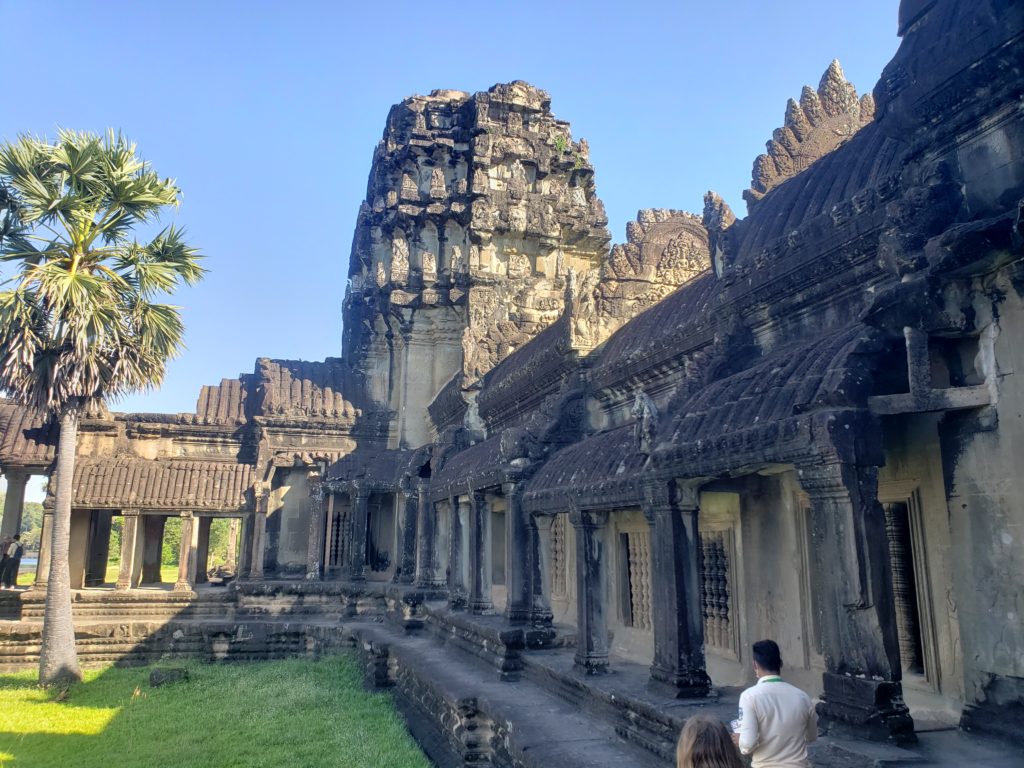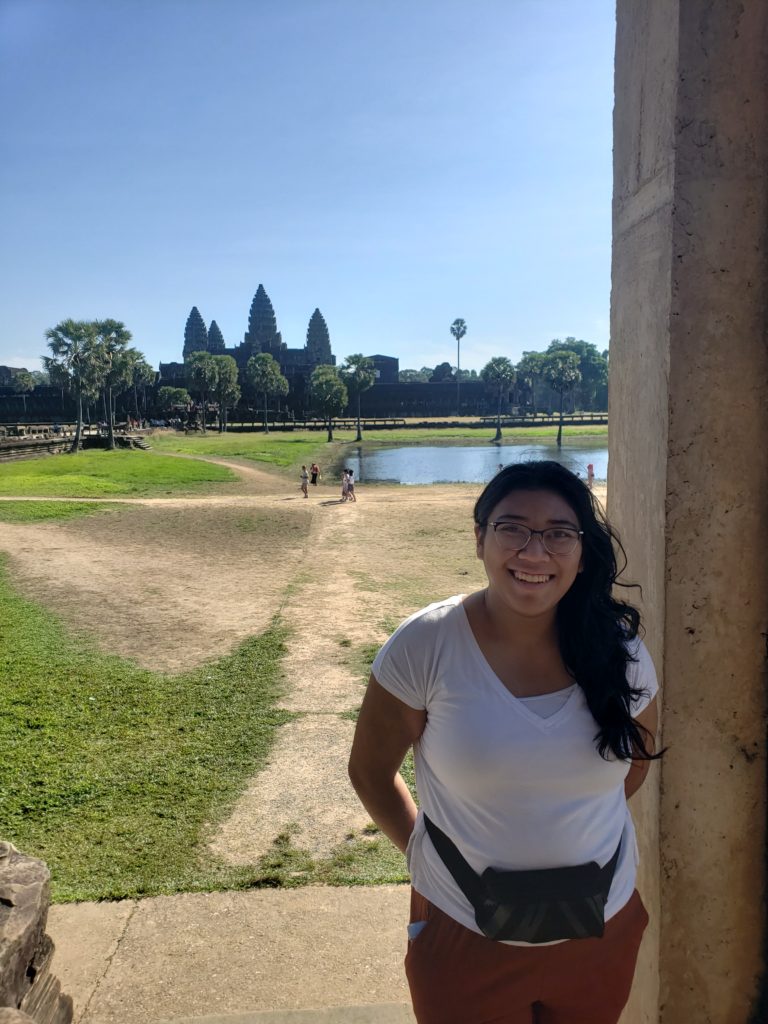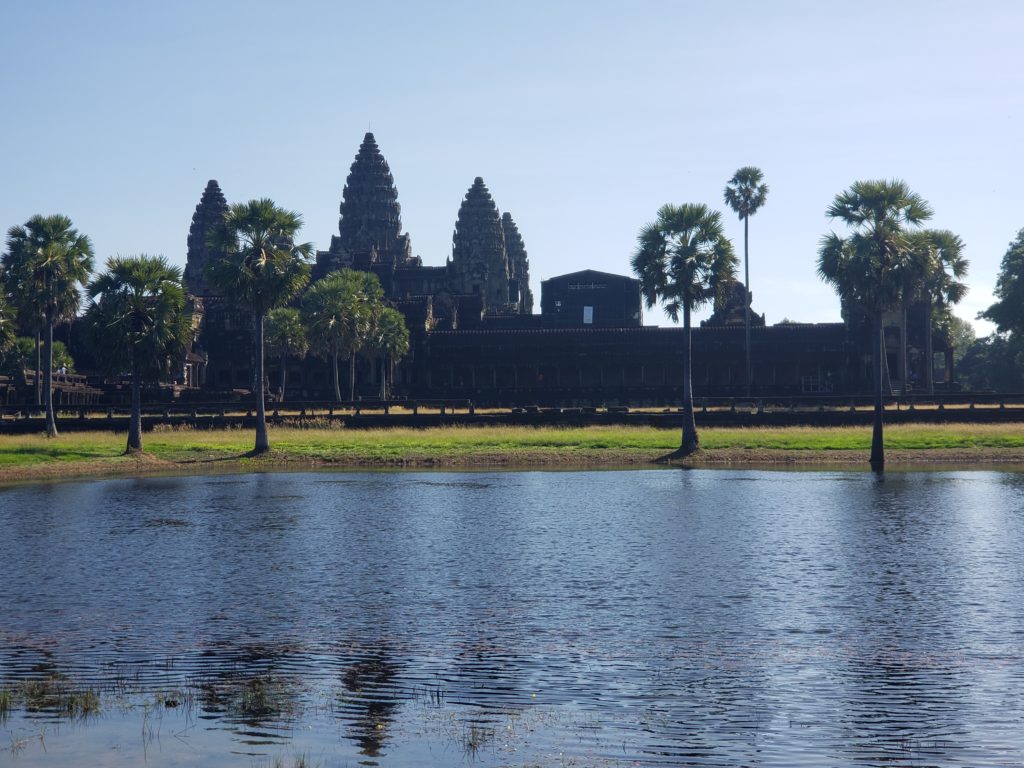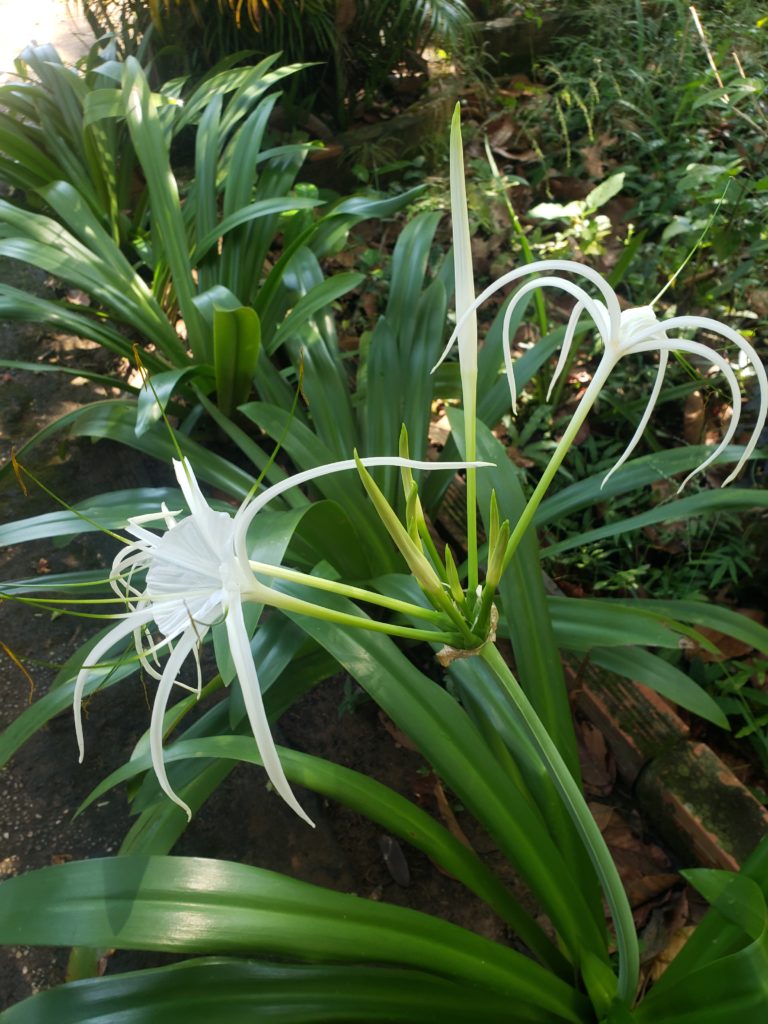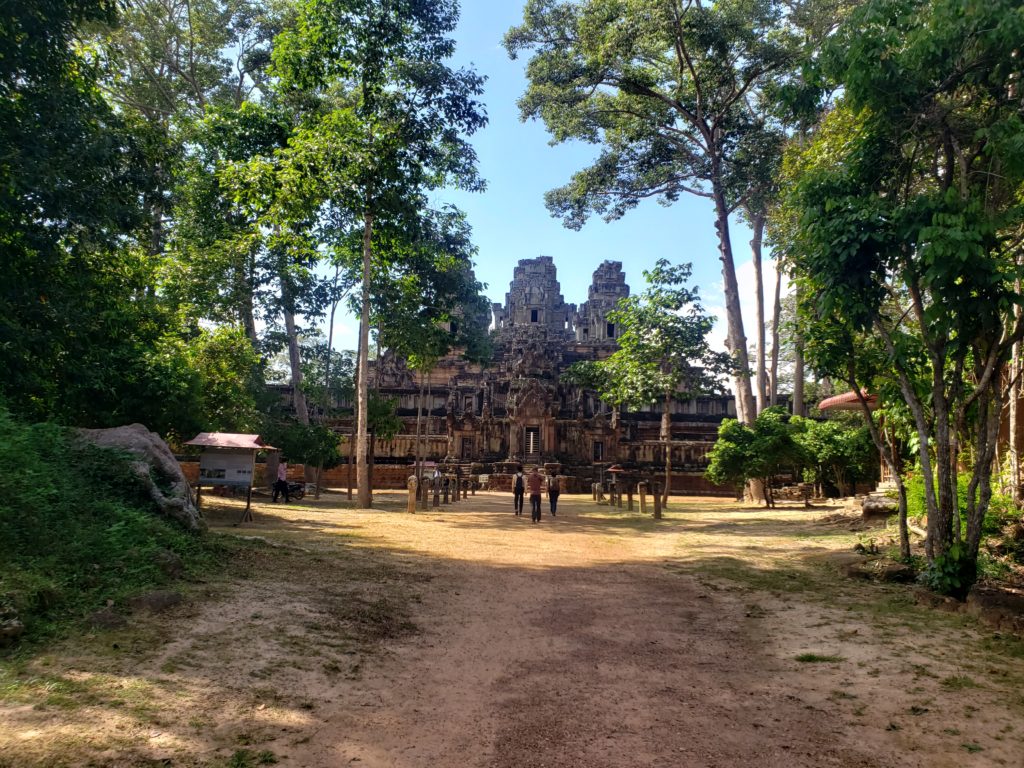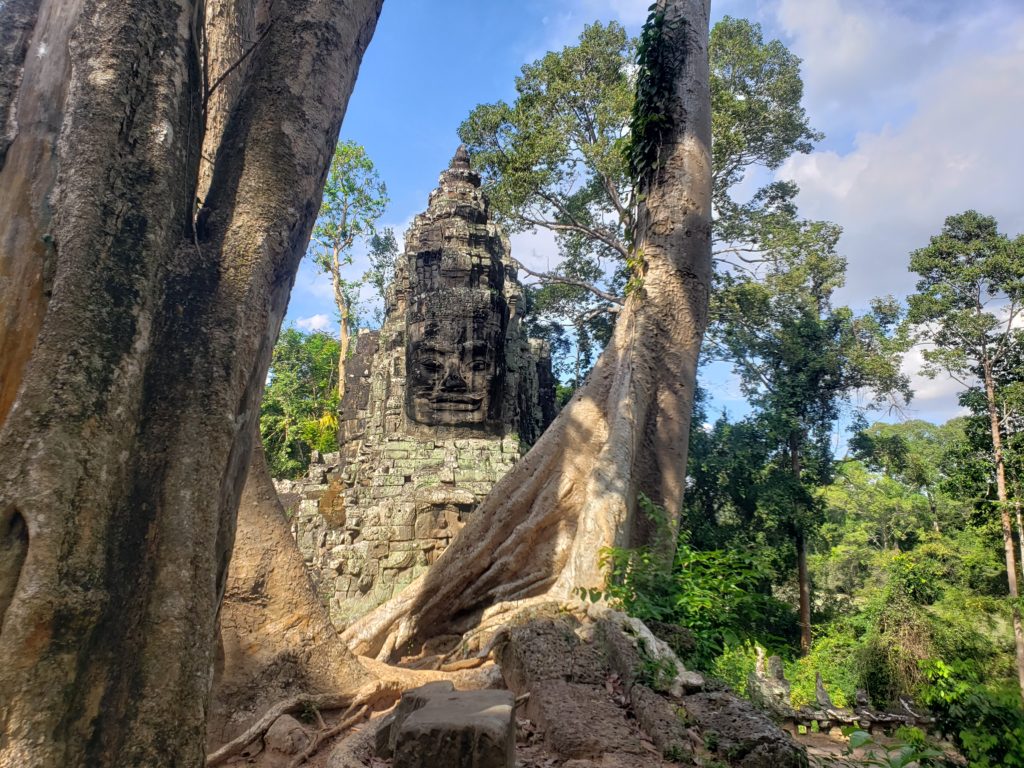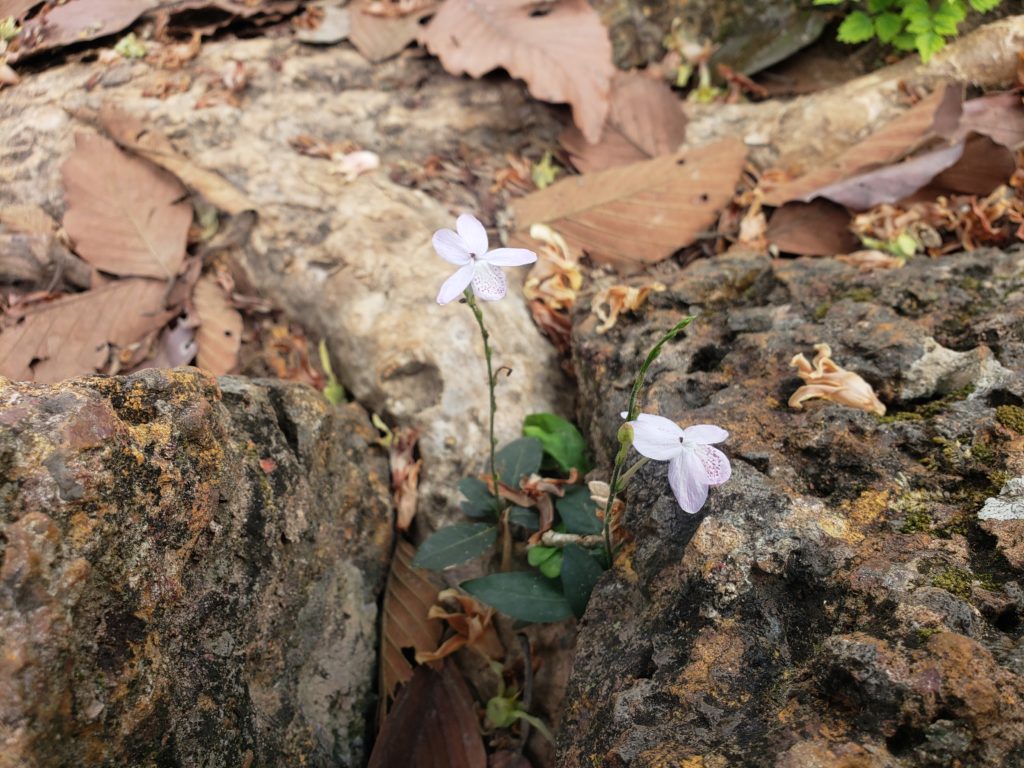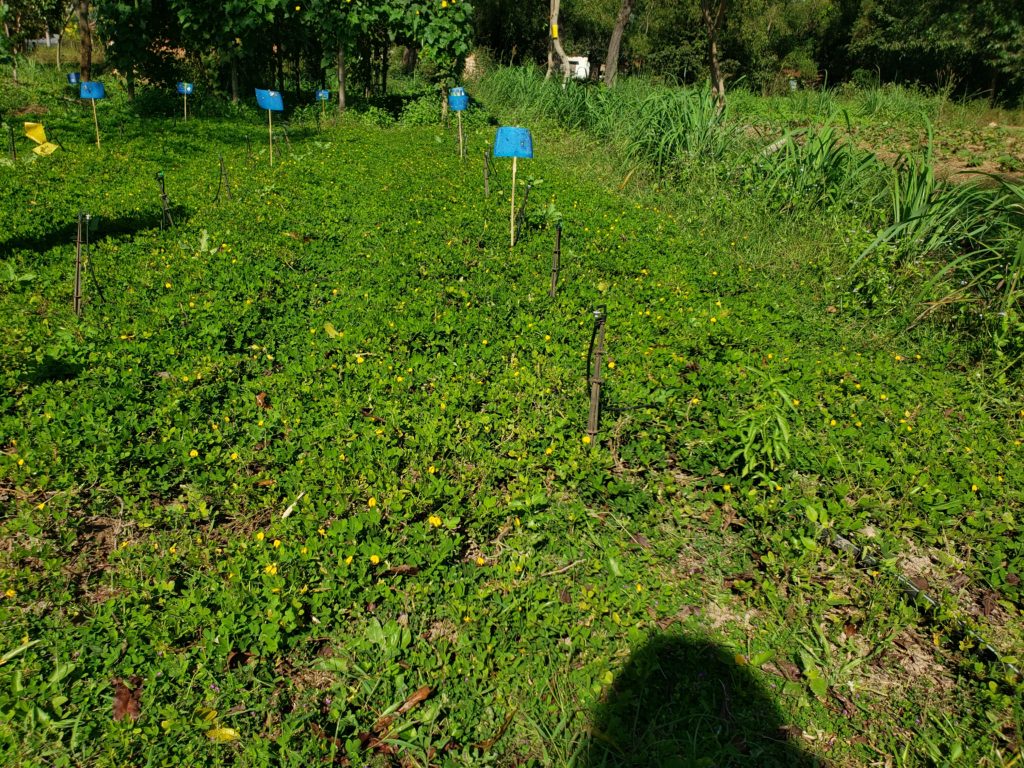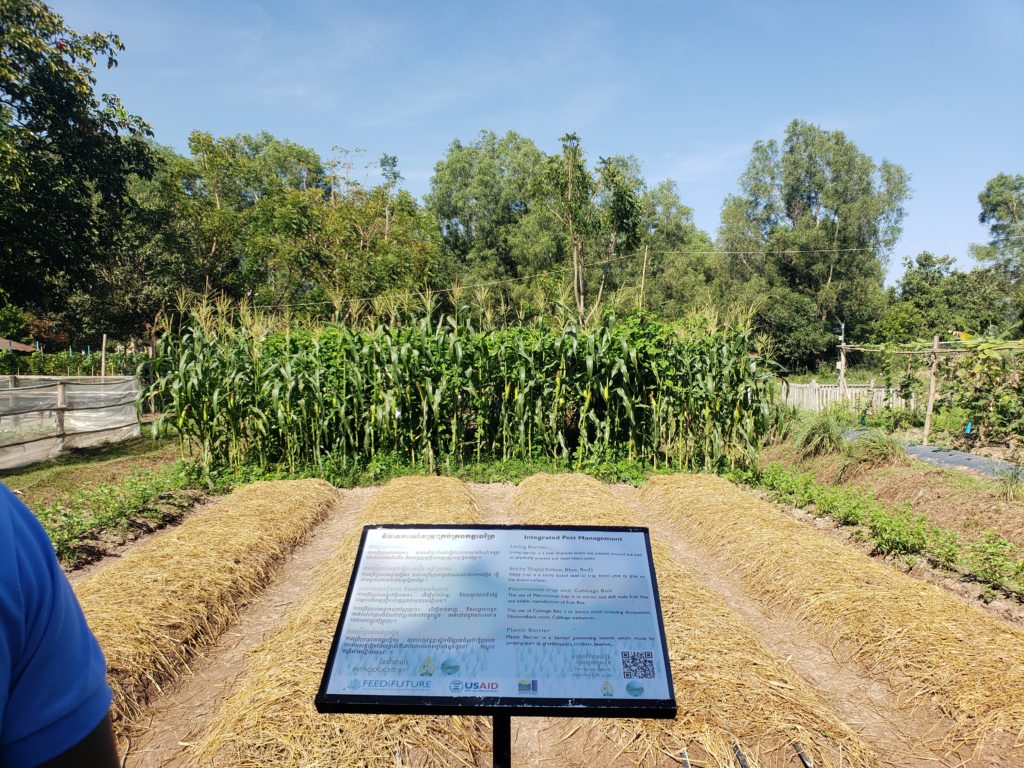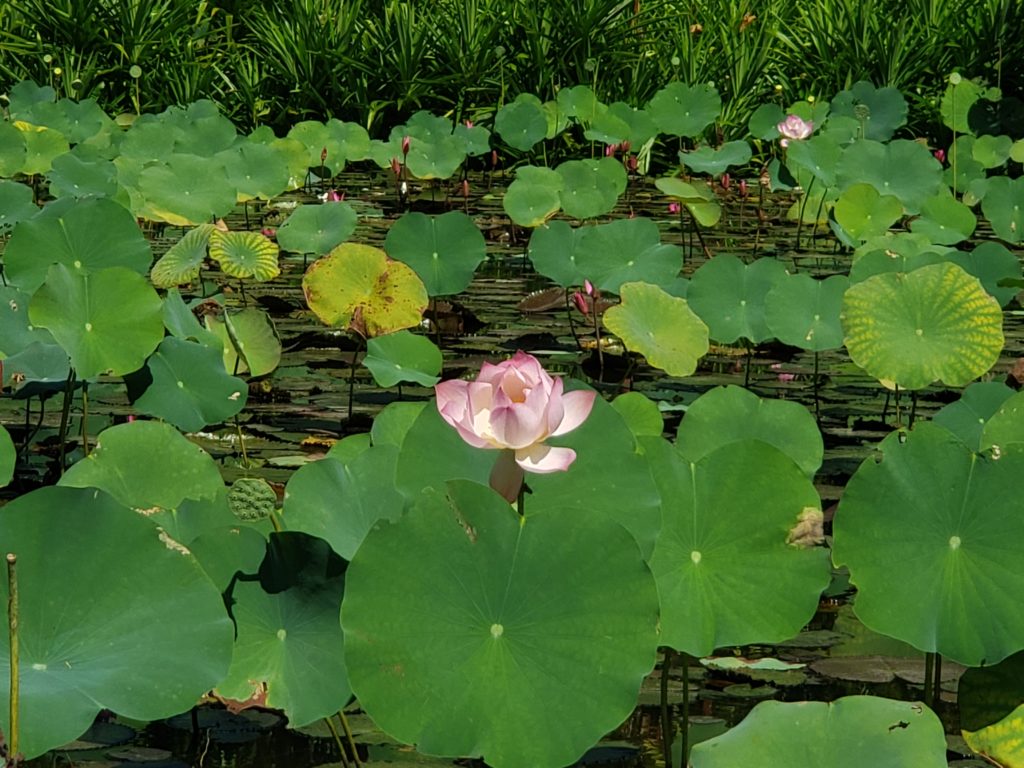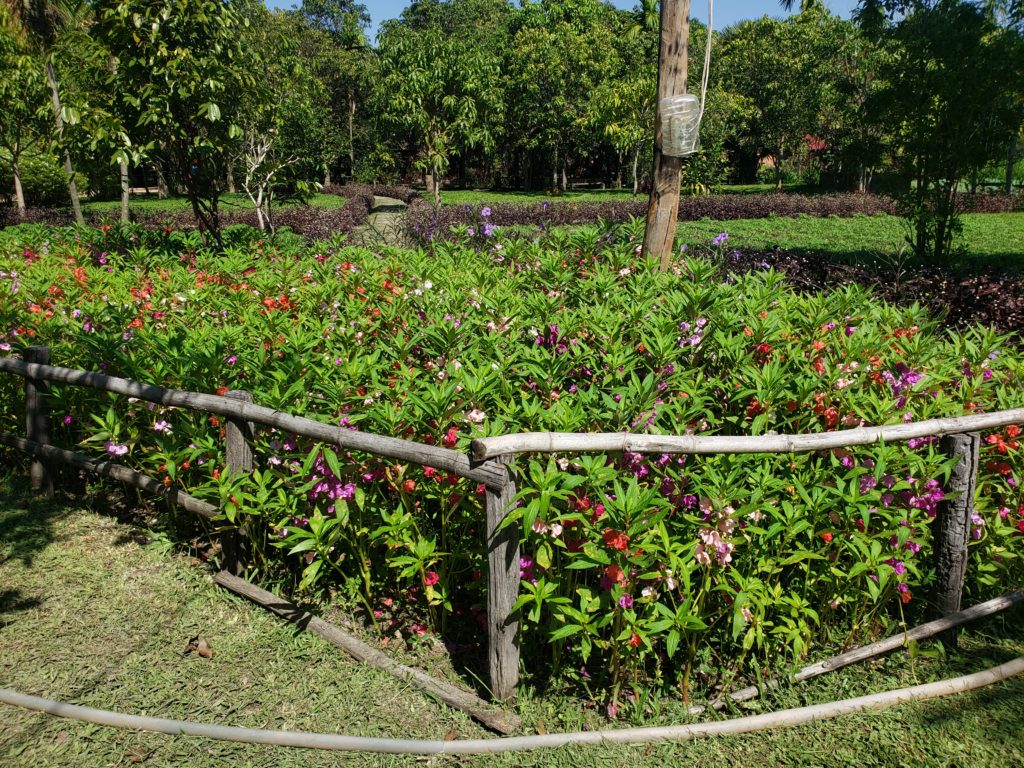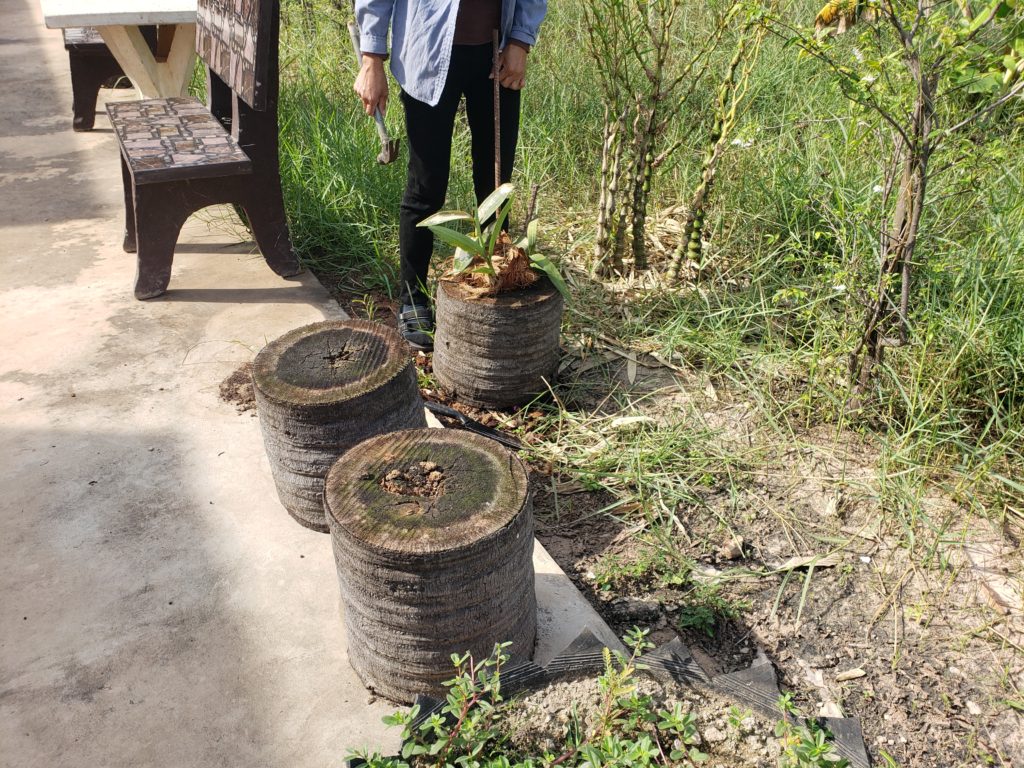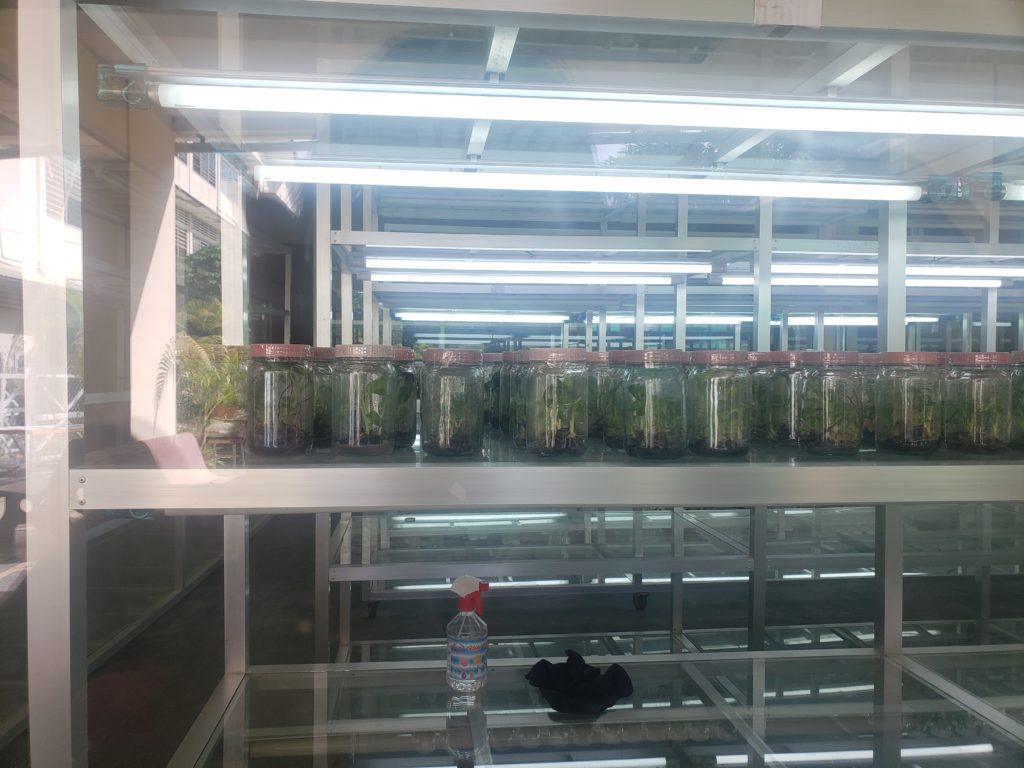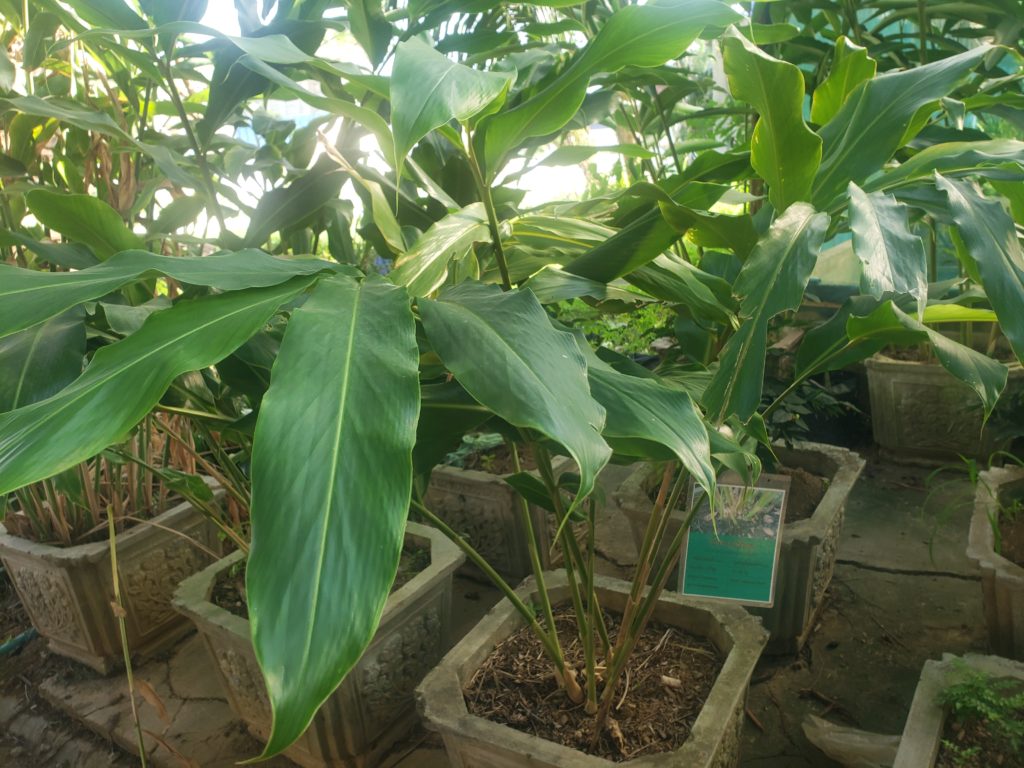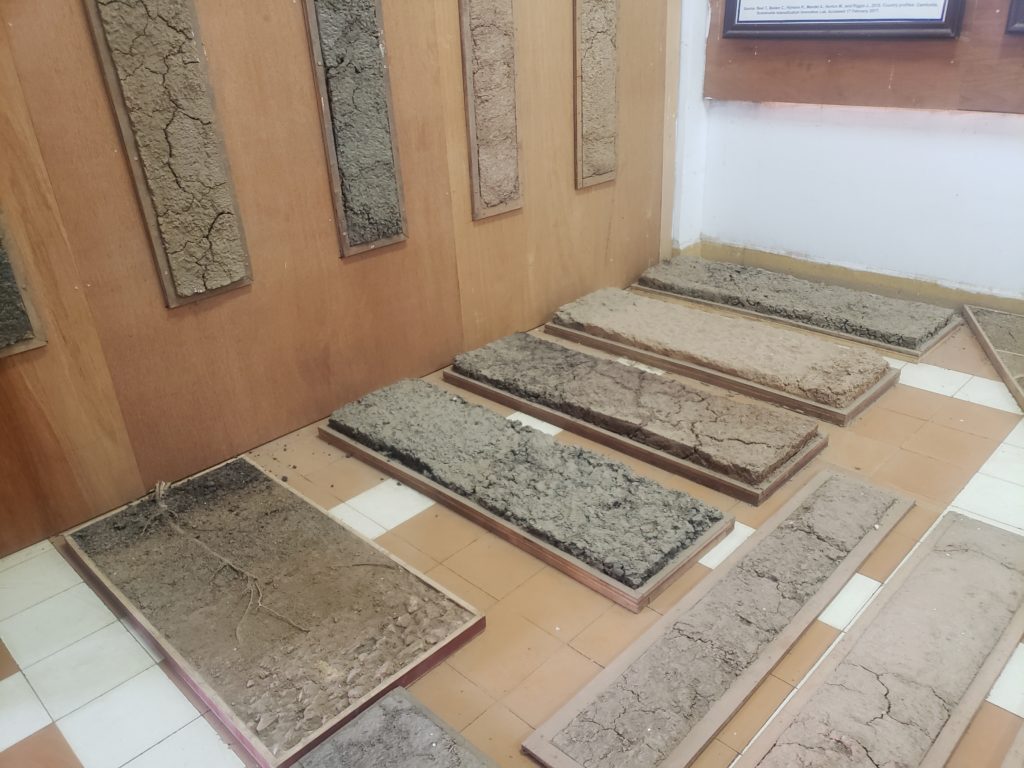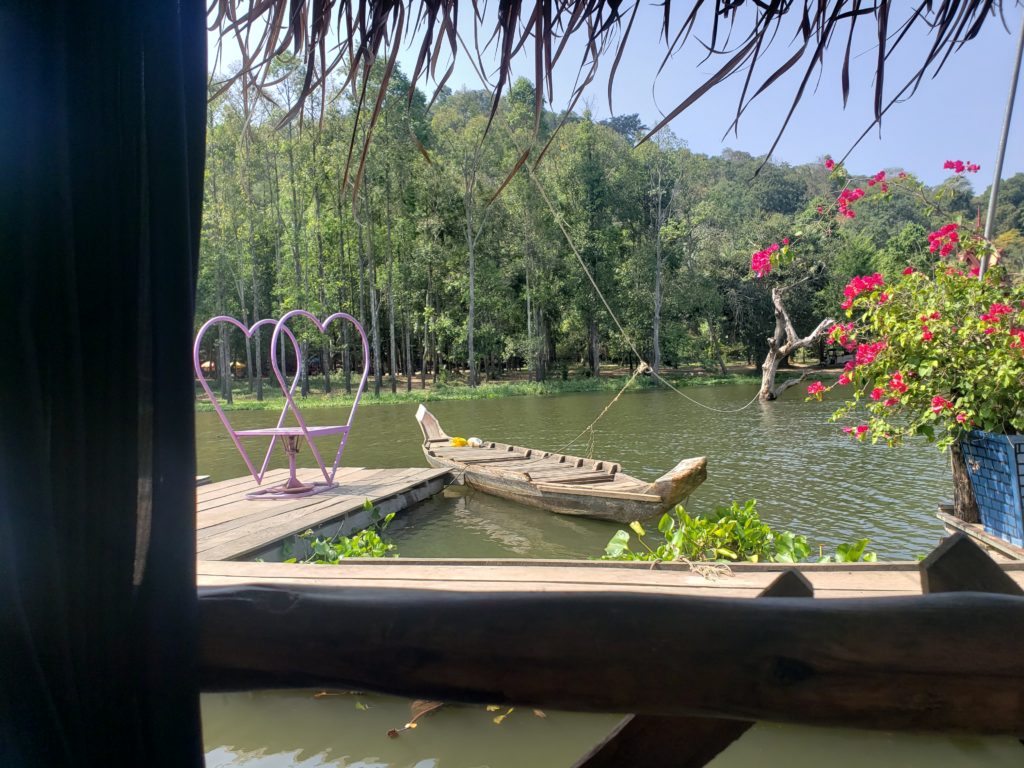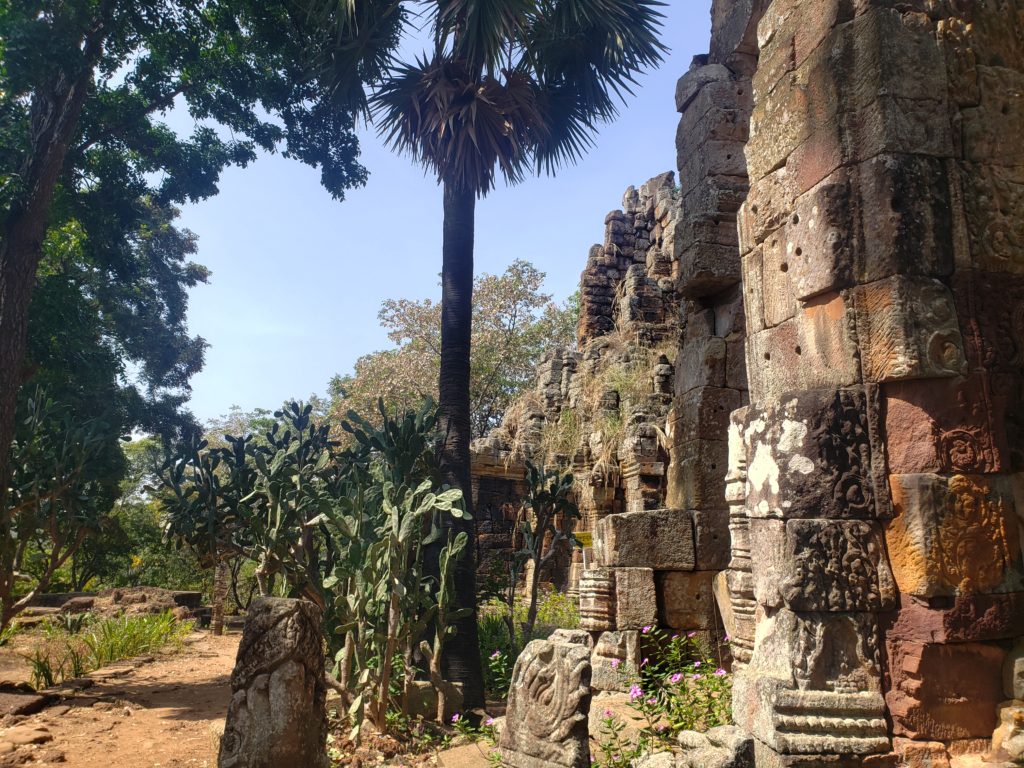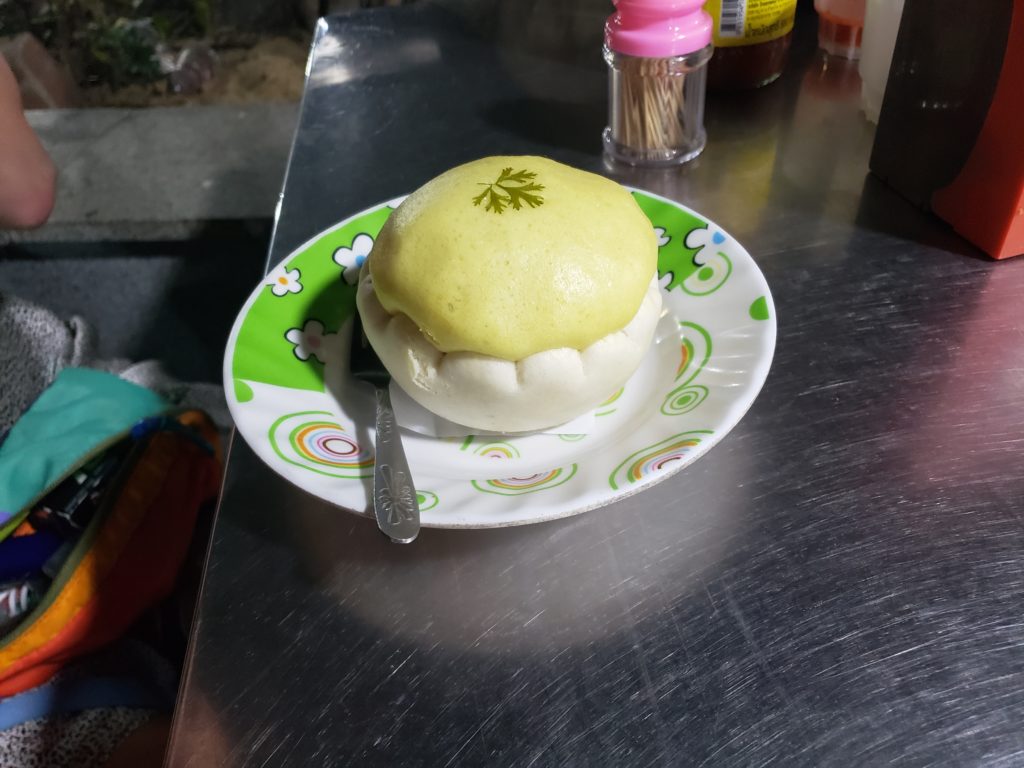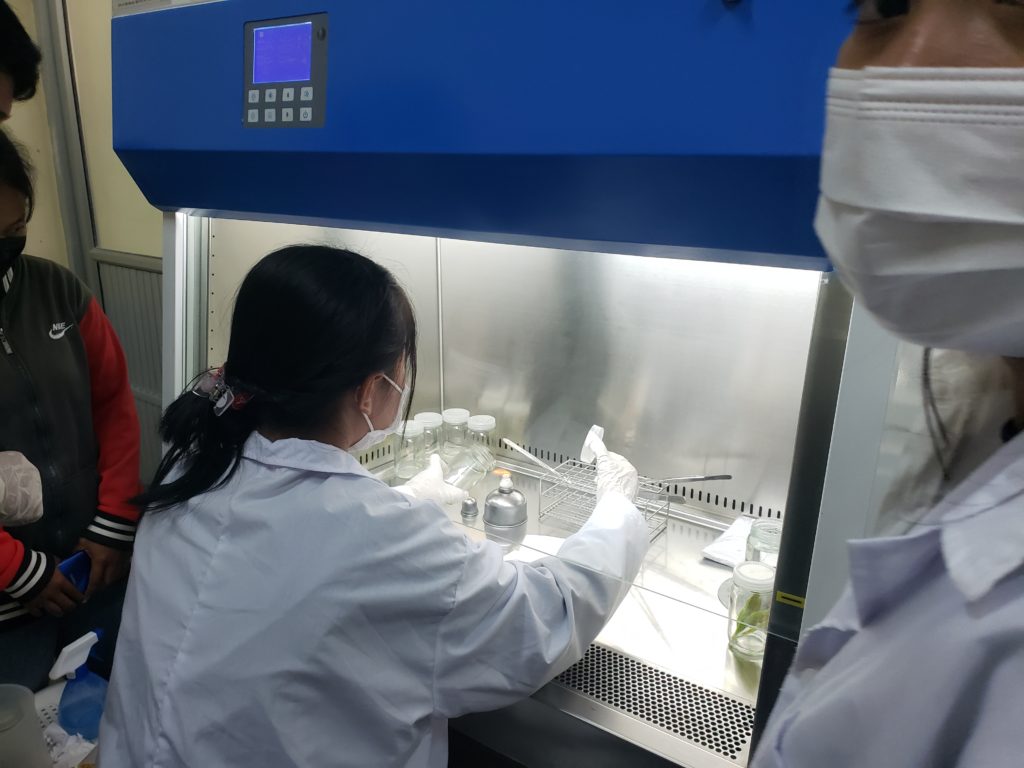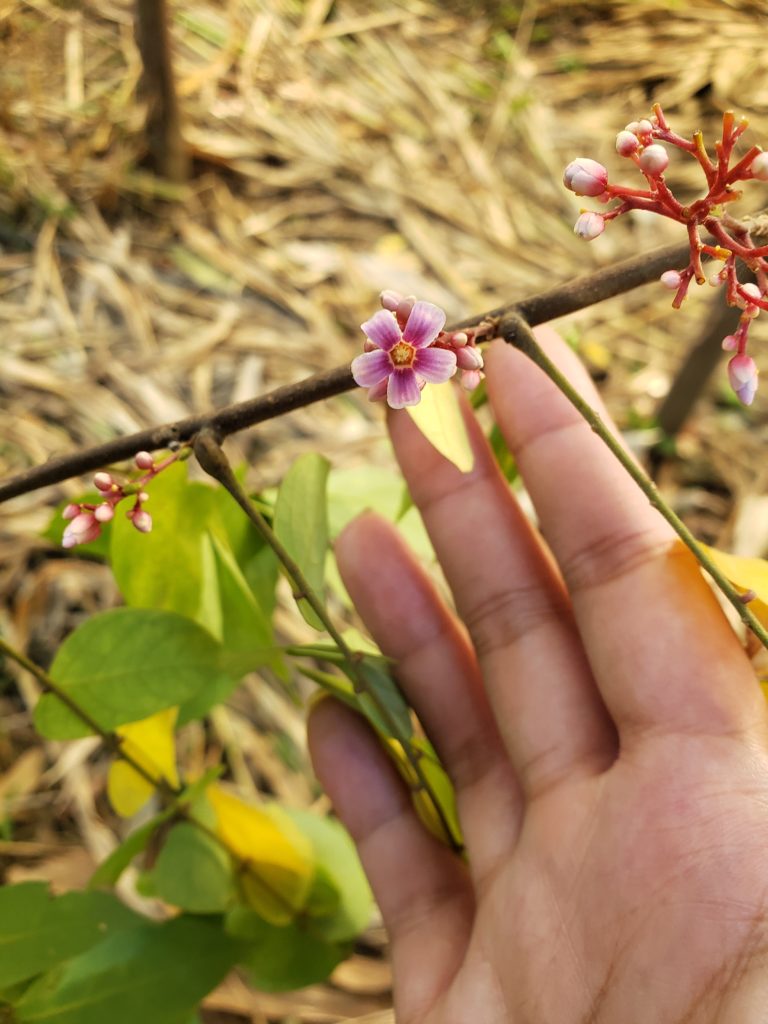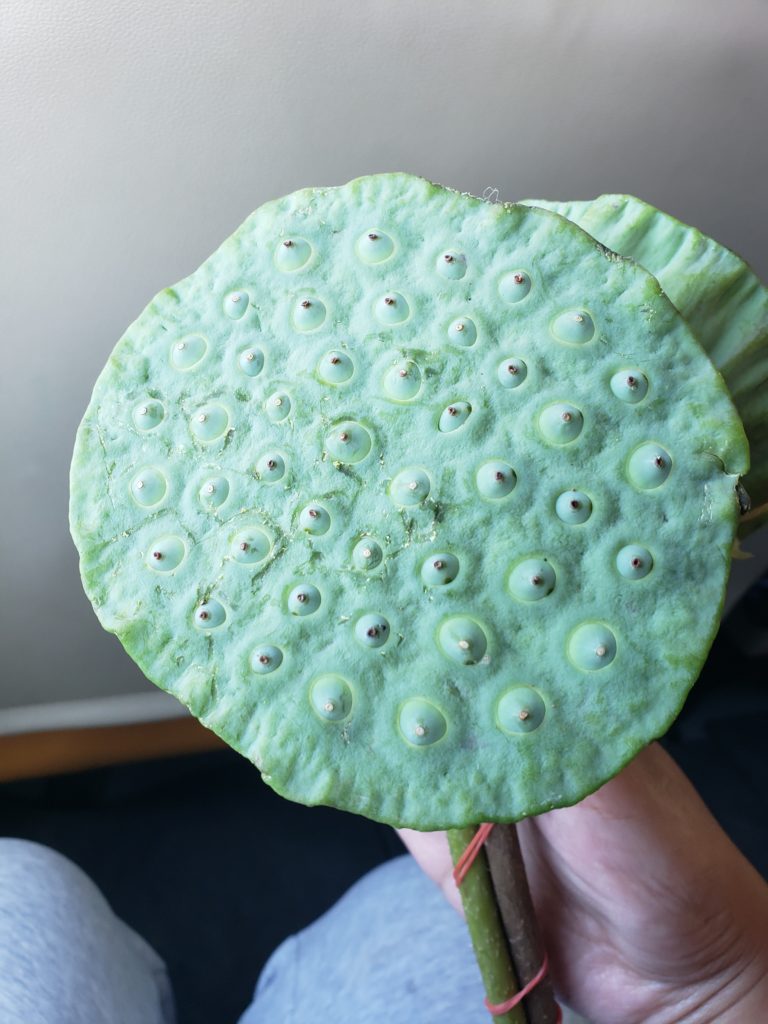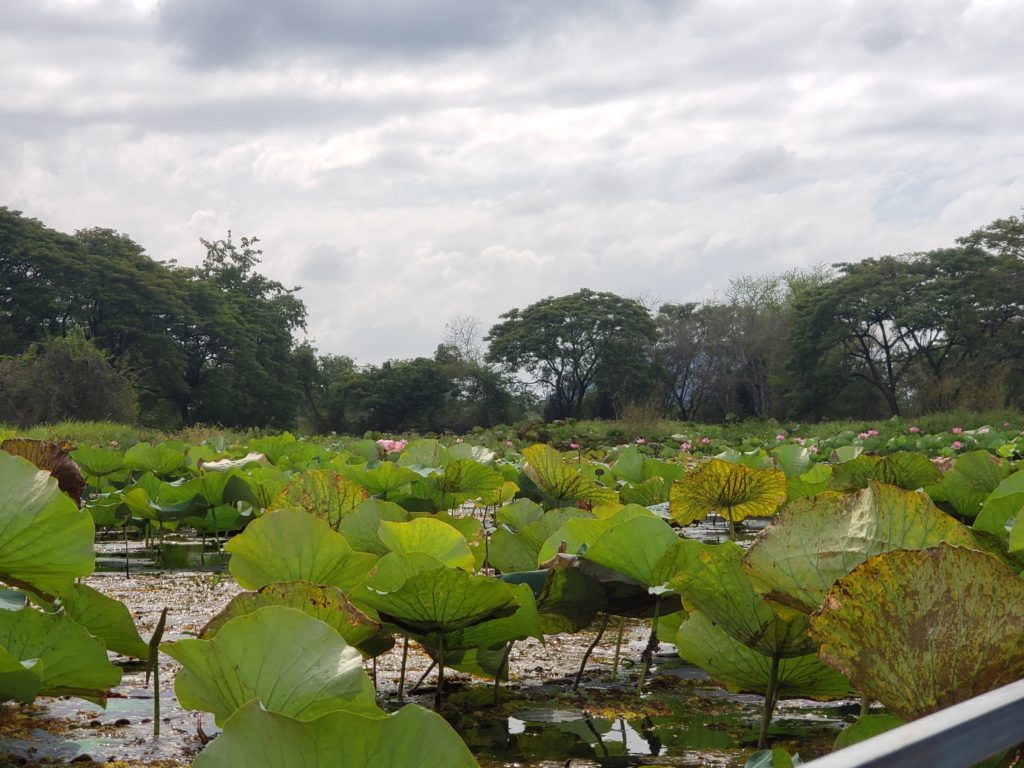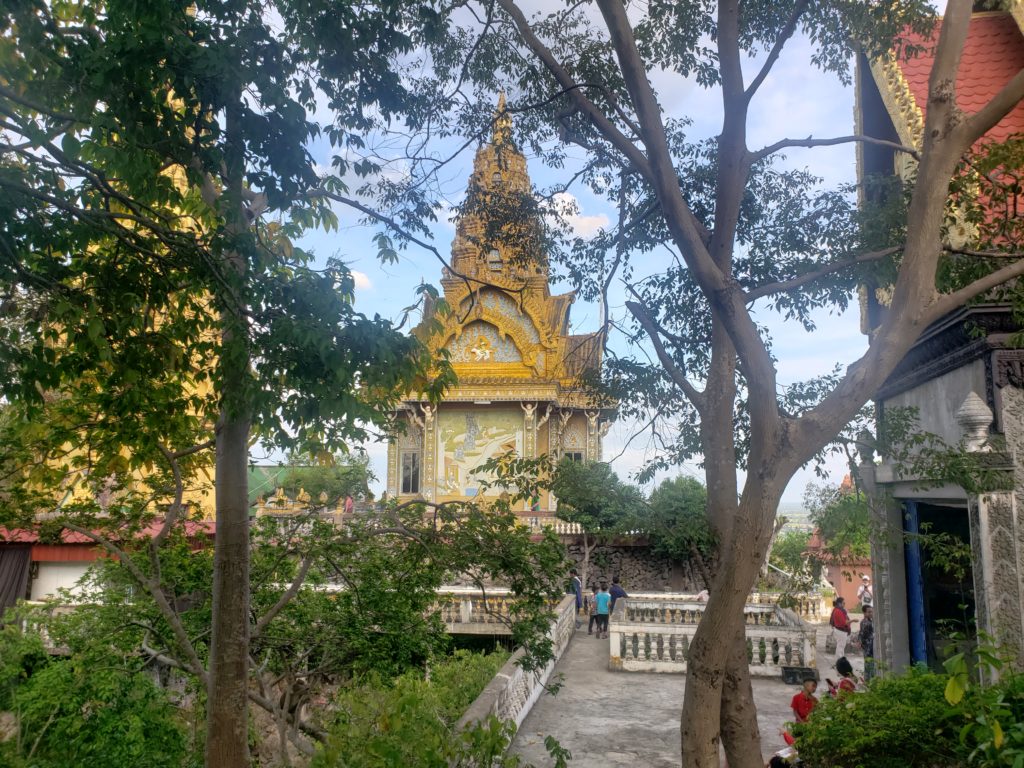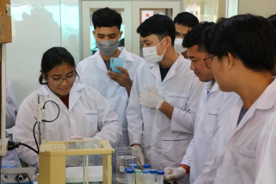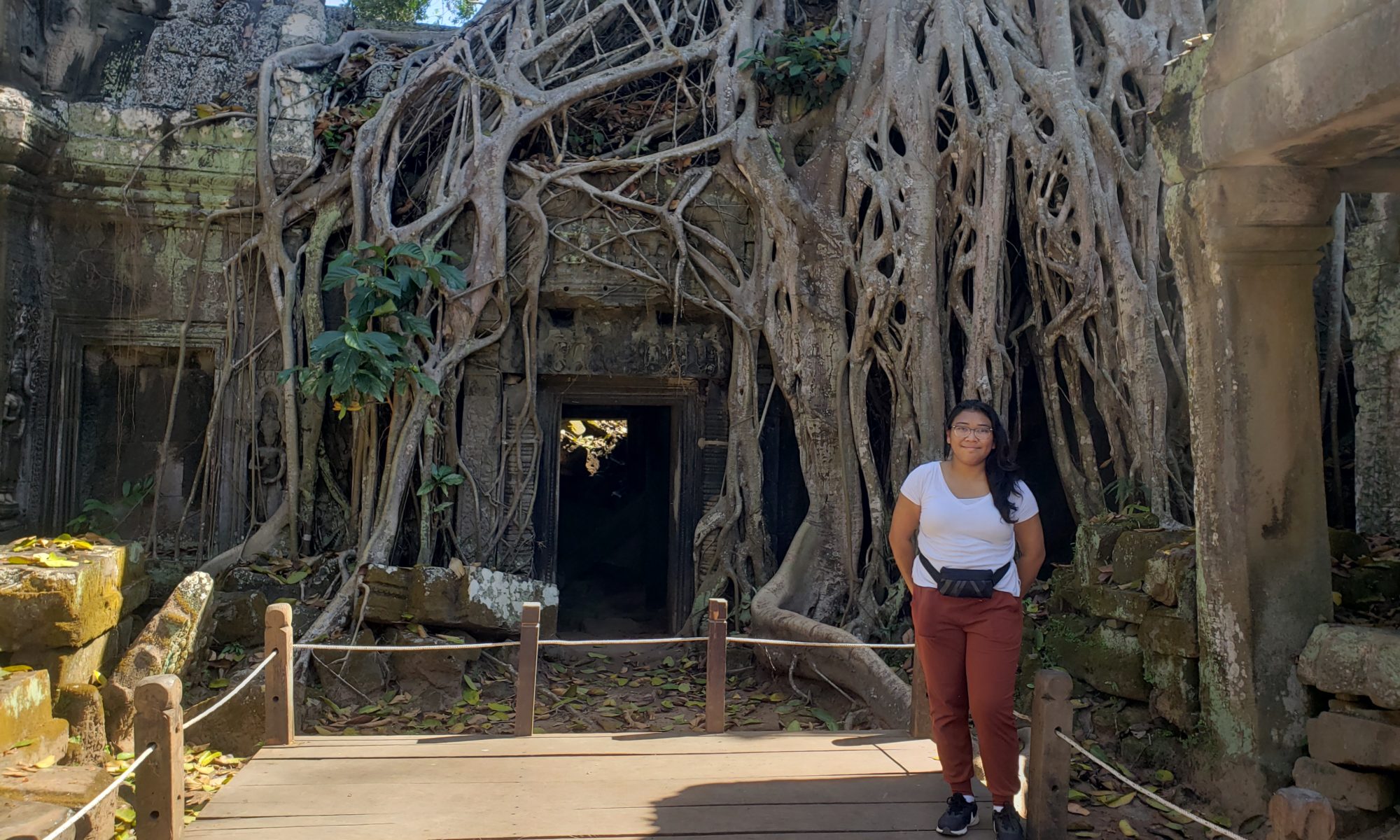
By Annie Carter
The USAID-funded John Ogonowski and Doug Bereuter Farmer-to-Farmer (F2F) Program provides technical assistance from U.S. volunteers to farmers and agricultural groups in foreign countries to promote sustainable improvements in both food security and agricultural production, processing, and marketing. The Cambodian Farmer-to-Farmer project is administered by the Smith Center for International Sustainable in partnership with the Center of Excellence on Sustainable Agricultural Intensification and Nutrition (CE SAIN). This project promotes the integration and productivity of vegetables, fruit, and livestock in food systems in Cambodia through short-term exchanges between skilled American volunteers and farmers, farm groups, agribusinesses, NGOs, and universities. These exchanges place American volunteers with Cambodian host-organizations for two-week assignments to respond to local requests for technical assistance.
Rithany Kheam is a master’s student in the School of Natural Resources at UTIA. In December 2022, she traveled to Cambodia as one of five volunteers with the F2F program. This cohort included Megan Sichterman (UT Plant Sciences), Max Miller, Ana Greenberger, and Craig Mauney. Kheam was hosted by the National University of Battambang (NUBB) where she conducted trainings on plant tissue culture to improve the production of cassava in Cambodia.
Before her trip to Cambodia, Kheam shared her initial thoughts with us about traveling to Southeast Asia. She is a second-generation Cambodian. Her parents immigrated to the United States before she was born. Kheam had mixed emotions traveling to Cambodia and seeing where her parents grew up. “I am a bit nervous because it’s my first time going to Cambodia. It’s a lot about the fact that my parents are from Cambodia. My parents are cautious when it comes to Cambodia because they grew up there during a very turbulent time. However, I am excited to connect with my culture and experience the country first-hand.”
Kheam’s parents are from the Battambang province where she traveled for her F2F assignment. She worked with university faculty and students to implement improved methods for producing clean planting material to combat the growth of the cassava mosaic virus (CMV), which has emerged in Southeast Asia. After demonstrating plant tissue culture methods to grow disease-free cassava cuttings, she showed students general techniques in plant tissue culture. Kheam said that her students actively participated by asking questions for clarification, communicating results with teammates, and were able to apply findings to their research and plant science coursework.
She explained that her experience participating in the F2F program provided important perspective on her studies. “It shows graduate students that their work can contribute to important causes outside the US. Even if it’s learning basic techniques for propagating plants in a lab, that can be relevant to areas of the world without the same access to technology.”
Expanding the depth of knowledge and skills for students and university faculty in other countries is one area where Kheam saw the potential for personal growth. “It seems like a good learning tool for sustainable farming practices is to learn about the limitations of certain regions. If we only focus on the U.S., especially certain regions of the U.S., it has such a large climate range. Looking at what is available financially and environmentally in other countries can force students to think more out of the box on how to arrive at new solutions for a changing world.”
In addition to her volunteer experience, Kheam commented on the need for international exchanges. “In general, sharing knowledge is mutually beneficial as the environment in other countries affects us too. It’s not really immediate, but it could be seen over time. If we’re looking from an economic standpoint, if this other country is not doing too well with their crops…then that’s going to hike up the prices of crops in other parts of the world.”
The December 2022 cohort of F2F volunteers included three graduate students. Expanding participation to students in these international exchanges broadens their perspective. Dave Ader, assistant research professor and Smith Center assistant director, explained “In many developing countries, engaging young people in agriculture is a high priority. By having young F2F volunteers, we are providing examples of young people involved in agriculture and agricultural research.”
Young, female scientists are unique to areas like Cambodia. “It is particularly important to showcase female leaders in agriculture. Countries like Cambodia have a large proportion of young people and because of cultural reasons, women have not had as many opportunities to be involved in science,” Ader said. “So by working with students, Rhitany is providing girls with a role model for what is possible in their careers.”
The University of Tennessee has an eager and active student body that are encouraged to participate in research and develop their international experiences. As volunteers, graduate students offer a new perspective to the F2F program and bring back their F2F experiences to their peers here on campus. Ader and the Smith Center team hope more graduate students will apply to serve as F2F volunteers in Cambodia and other countries in the future.
